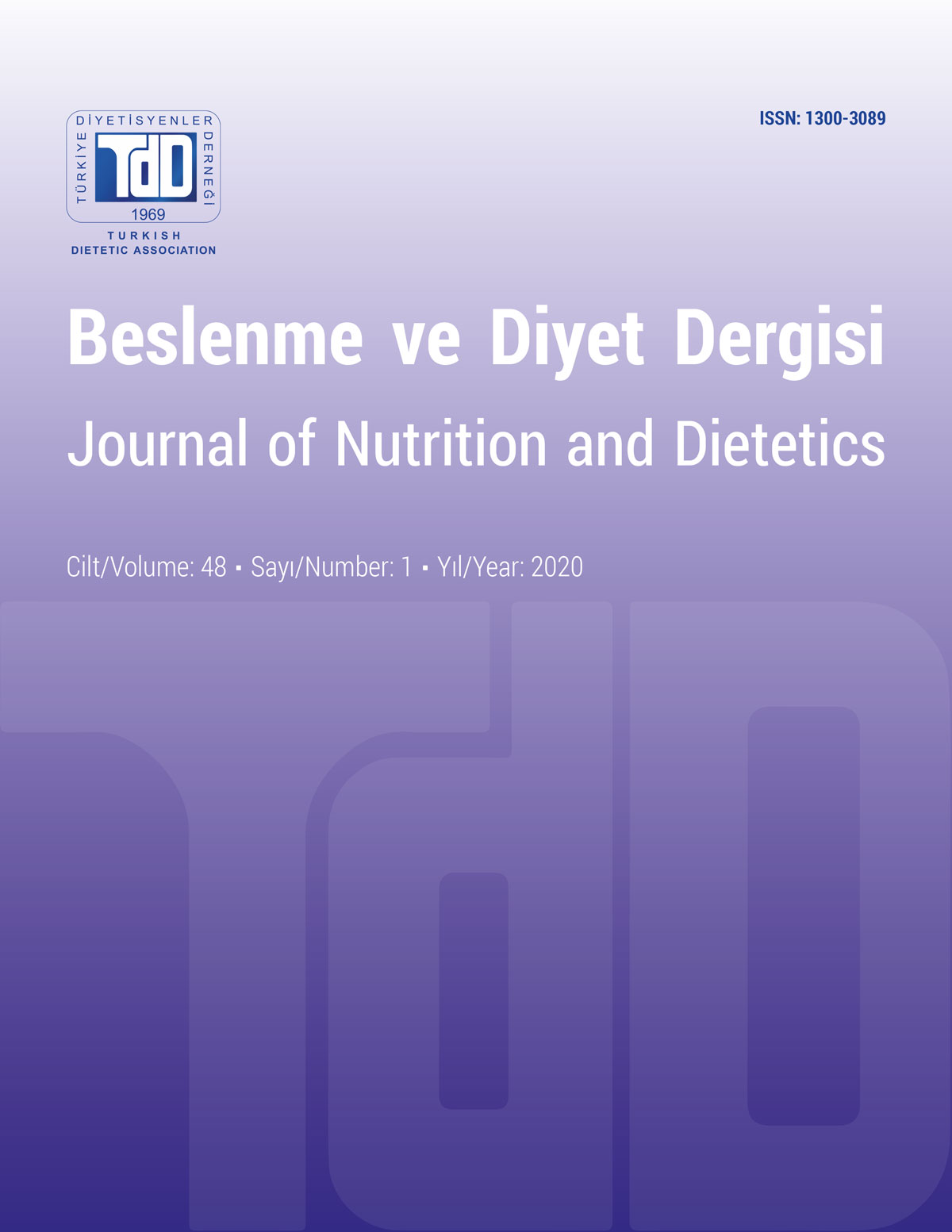Impact of Maternal Education on Complementary Feeding
DOI:
https://doi.org/10.33076/2020.BDD.1257Keywords:
Infant nutrition, complementary feeding, knowledge level, complementary feeding educationAbstract
Aim: This study aimed to evaluate the effect of comprehensive complementary feeding education given by dietitian on maternal nutritional knowledge and complementary feeding practices.
Subjects and Method: Eighty three mothers and their 3-5 months-old infants who did not start complementary feeding were included in the study. Subjects were divided into two groups: education group (n=42 mothers and infants) and control group (n=41 mothers and infants). Data was collected by a questionnaire including socio-demographic characteristics and maternal knowledge on complementary feeding. At the first interview, mothers in the education group were given a computer-assisted training and a booklet about complementary feeding. The mothers in the control group received a routine care in the outpatient clinic, and a simple brochure previously used in the outpatient clinic. In the second interview, when the mothers started complementary feeding, the reasons for starting complementary feeding and first complementary foods given to infants were questioned. In the third interview (at 3rd months of complementary feeding), the questionnaire on maternal knowledge level on complementary feeding was repeated.
Results: Maternal knowledge level on complementary feeding in the education group was found to be higher than the control group (education: 20.0, control: 14.0 points, p<0.001). It was also determined that knowledge on complementary feeding scores of mothers in the education group significantly increased at 3rd interview compared to baseline (baseline: 13.0, 3rd interview: 20.0 points, p<0.001). The percentage of mothers who started complementary feeding at 6th months was higher in the education groups than control group (education: 64.3%, control: 17.1%, p<0.001). Salt and sugar addition to complementary foods was also less frequent in the education group (p<0.05).
Conclusion: To increase the knowledge level of mothers about complementary feeding and to prevent improper practice, it is important to use written information notes together with visual presentations while allocating appropriate time.

